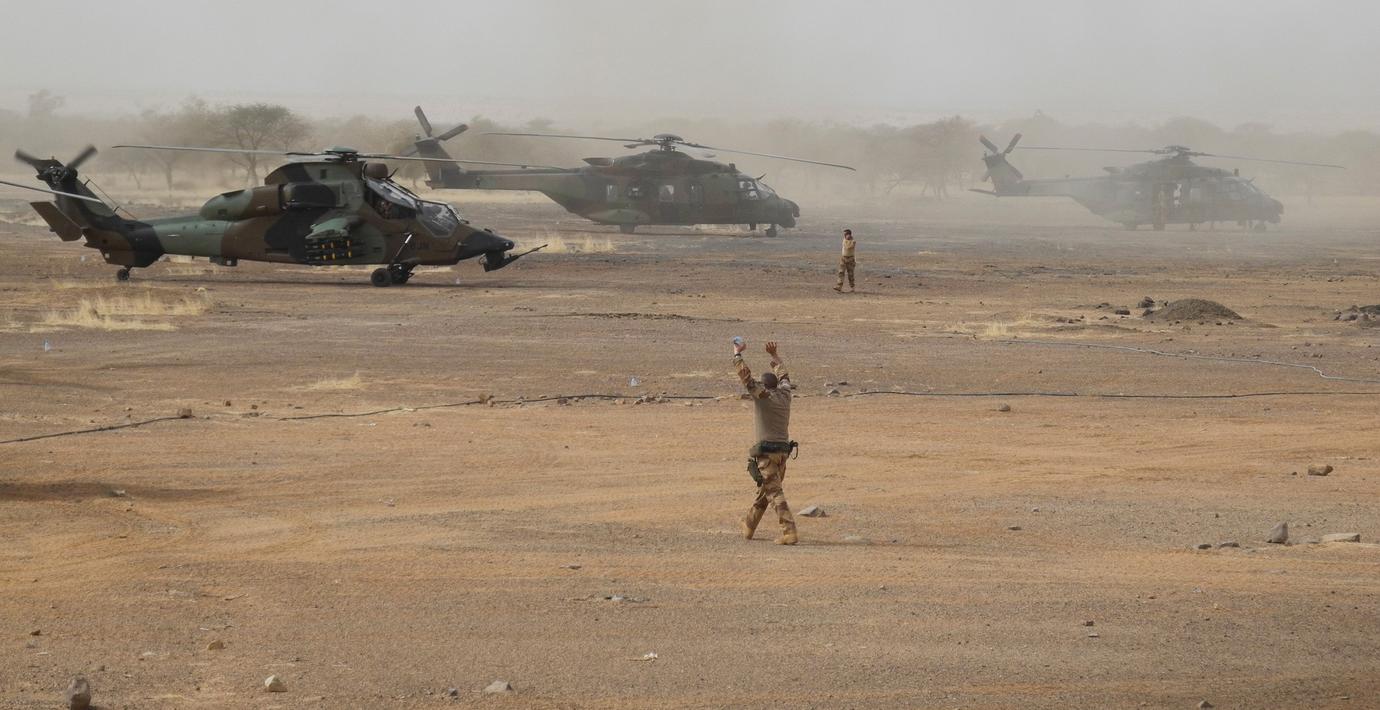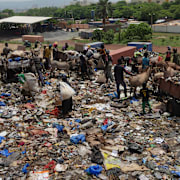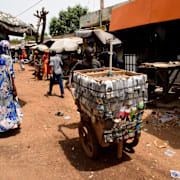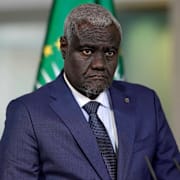
13 franska soldater döda i helikopterkrasch i Mali
13 franska soldater har dött efter att två helikoptrar kolliderat under en operation mot militanta islamister i Mali, rapporterar Reuters.
Franska presidenten Emmanuel Macron uttrycker sitt deltagande över det inträffade, enligt ett uttalande.
bakgrund
Konflikten i norra Mali
Wikipedia (en)
The Northern Mali Conflict, Mali Civil War or Mali War refers to armed conflicts that started from January 2012 between the northern and southern parts of Mali in Africa. On 16 January 2012, several insurgent groups began fighting a campaign against the Malian government for independence or greater autonomy for northern Mali, an area of northern Mali they called Azawad. The National Movement for the Liberation of Azawad (MNLA), an organization fighting to make this area of Mali an independent homeland for the Tuareg people, had taken control of the region by April 2012.
On 22 March 2012, President Amadou Toumani Touré was ousted in a coup d'état over his handling of the crisis, a month before a presidential election was to have taken place. Mutinous soldiers, calling themselves the National Committee for the Restoration of Democracy and State (CNRDR), took control and suspended the constitution of Mali. As a consequence of the instability following the coup, Mali's three largest northern cities—Kidal, Gao and Timbuktu—were overrun by the rebels on three consecutive days. On 5 April 2012, after the capture of Douentza, the MNLA said that it had accomplished its goals and called off its offensive. The following day, it proclaimed the independence of northern Mali from the rest of the country, renaming it Azawad.The MNLA were initially backed by the Islamist group Ansar Dine. After the Malian military was driven from northern Mali, Ansar Dine and a number of smaller Islamist groups began imposing strict Sharia law. The MNLA and Islamists struggled to reconcile their conflicting visions for an intended new state. Afterwards, the MNLA began fighting against Ansar Dine and other Islamist groups, including Movement for Oneness and Jihad in West Africa (MOJWA/MUJAO), a splinter group of Al-Qaeda in the Islamic Maghreb. By 17 July 2012, the MNLA had lost control of most of northern Mali's cities to the Islamists.The government of Mali asked for foreign military help to re-take the north. On 11 January 2013, the French military began operations against the Islamists. Forces from other African Union states were deployed shortly after. By 8 February, the Islamist-held territory had been re-taken by the Malian military, with help from the international coalition. Tuareg separatists have continued to fight the Islamists as well, although the MNLA has also been accused of carrying out attacks against the Malian military.A peace deal between the government and Tuareg rebels was signed on 18 June 2013, however on 26 September 2013 the rebels pulled out of the peace agreement and claimed that the government had not respected its commitments to the truce. Fighting is still ongoing even though French forces are scheduled for withdrawal. A ceasefire agreement was signed on 19 February 2015 in Algiers, Algeria, but sporadic terrorist attacks still occur.Despite the signing of a peace accord in the capital on 15 April 2015, low-level fighting continues.
Omni är politiskt obundna och oberoende. Vi strävar efter att ge fler perspektiv på nyheterna. Har du frågor eller synpunkter kring vår rapportering? Kontakta redaktionen



